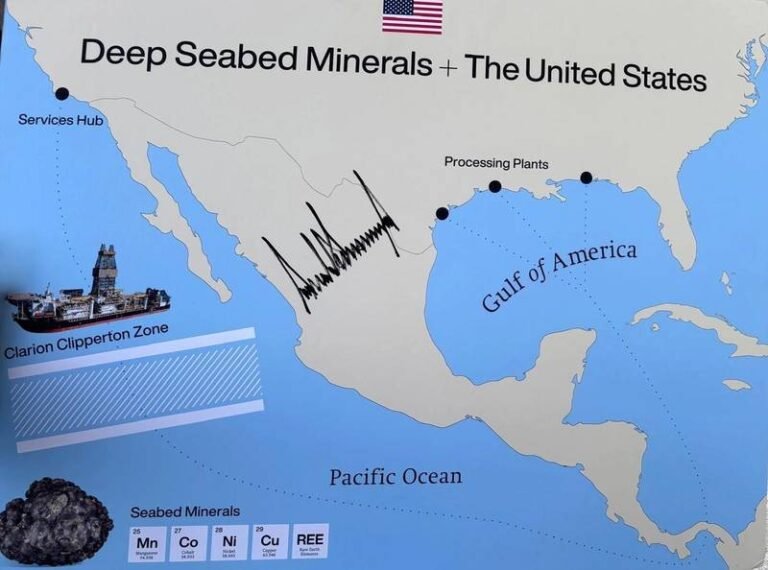Deep-Sea Mining Company Seeks Approval to Mine International Seabed
Deep-sea mining firm The Metals Co has made a groundbreaking move by requesting the Trump administration’s approval to mine the international seabed. This marks the first time a company has sought permission to operate outside U.S. territorial waters.
Last week, President Donald Trump signed an order aimed at accelerating mining activities in both domestic and international waters. The goal is to enhance U.S. access to critical minerals and reduce China’s dominance in the market.
This development has heightened tensions between Washington and the International Seabed Authority, an organization backed by the United Nations that has been working on mining standards for over a decade. China has objected to the order, citing violations of international law.
The seabed is believed to contain substantial reserves of polymetallic nodules, which are essential for manufacturing electric vehicles and electronics. Proponents of deep-sea mining argue that it could reduce the need for large-scale mining operations on land, which are often met with opposition from local communities.
However, environmental groups are calling for a ban on deep-sea mining, warning that such activities could lead to irreversible damage to marine biodiversity.
While any country can permit deep-sea mining within its territorial waters, companies are now eyeing U.S. waters for potential mining operations. Vancouver-based The Metals Co has submitted an application to the U.S. Department of Commerce seeking a commercial recovery permit under the Deep Seabed Hard Mineral Resources Act of 1980.
The company aims to operate in the Pacific Ocean’s Clarion-Clipperton Zone, located between Hawaii and Mexico. The CEO of The Metals Co, Gerard Barron, testified at a congressional hearing on Tuesday, emphasizing the urgent need for critical minerals in the U.S. He estimated that the company could extract over 1 billion nodules containing manganese, copper, nickel, and cobalt, meeting U.S. demands for decades.
Glencore has already agreed to purchase metals extracted from the seabed by The Metals Co. The company expects an initial determination on its commercial application within 60 days, followed by a comprehensive environmental and technical review.
Greenpeace has criticized the application, labeling it as a violation of international law and scientific consensus. The organization urged other governments to uphold international regulations and cooperation in the face of what it termed as “rogue” deep-sea mining activities.
During the congressional hearing, Republicans expressed support for the nascent deep-sea mining industry, citing its potential to enhance U.S. mineral independence. Democrats, on the other hand, raised concerns about the economic viability and environmental impact of deep-sea mining.
While the debate on deep-sea mining continues, it is evident that robust regulation and environmental safeguards must be in place to mitigate potential risks associated with this emerging industry.
(Source: Reuters)

